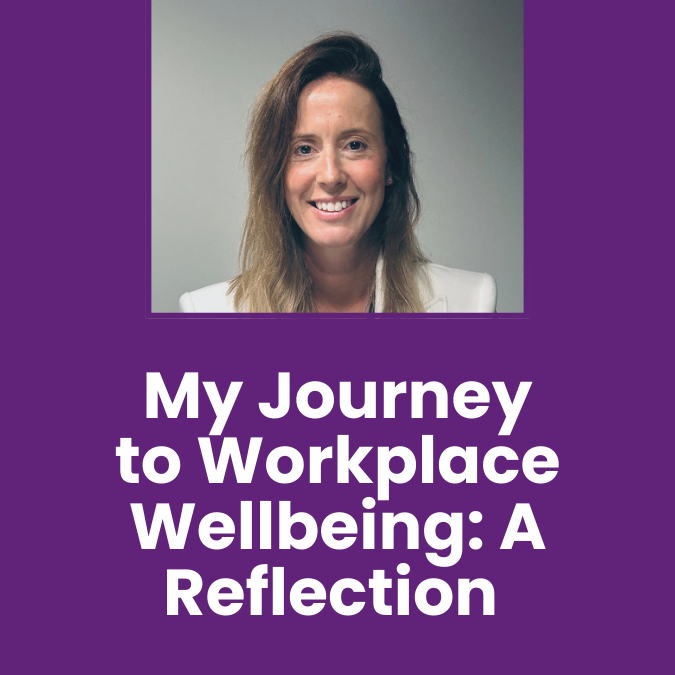I’ve always been deeply fascinated by human behaviour and psychology. Understanding the intricacies of the human brain has been a passion of mine since my early years. This passion naturally led me to study psychology and, later, neuroscience. I was captivated by how our brains shape our experiences, emotions, and responses, and how those same experiences shape our minds in return. However, life often takes unexpected turns, and instead of continuing down the academic path I envisioned, I found myself working in banking—a field far removed from the world of psychology I had imagined for myself.
For over 25 years, banking became my professional home. I worked in several Learning & Development (L&D) and people experience roles, and more recently, I was the wellbeing lead for HSBC. It may seem ironic, but the insights I gained into human behaviour while working in these roles were extraordinary. After all, banks aren’t just about numbers; they’re about people. I often joke that bankers have more personality types than they have interest rates. Who knew you could unravel so much psychology just by observing how people respond to workplace challenges and market fluctuations.?
It’s funny looking back, how institutionalised I became. Like many others who spend decades in one industry, I developed a certain comfort zone. The idea of leaving banking was daunting, even though deep down I felt a pull towards something more aligned with my core passions. There’s a certain fear that comes with the thought of walking away from a steady career into the unknown, especially when that unknown is something your soul craves but you haven’t fully defined.
That fear started to shift when I came across a quote that resonated with me on a profound level: “If you want to change the world, you have to change the minds of the bankers, the children, and the business owners.” Dr. Loretta Scott’s words seemed to speak directly to me. I had spent years shaping my understanding of workplace wellbeing through the lens of banking, but the other part of my heart knew that I wanted to help business owners and children understand and manage their own wellbeing.
The experience I’d gathered wasn’t just a foundation for improving business performance or managing workforces; it was an insight into human lives, behaviours, and choices. Armed with this, I took the leap into something that felt more meaningful. I wanted to be part of a shift that wasn’t just about driving organisational success, but about supporting the human soul.
That’s how I found my way to Thought Bubbles, a workplace wellbeing consultancy and training platform where I could put my passion to work. As the lead for consultancy training, I am committed to creating inclusive, proactive, and sustainable workplace wellbeing strategies for organizations. Workplace wellbeing has become a key focus for businesses, and rightly so. It’s not just about the bottom line anymore; it’s about how people feel, how they manage stress, and how they find balance in their professional lives.
On World Mental Health Awareness Day, it feels important to reflect on how closely linked workplace wellbeing is to mental health. The environment we spend a third of our lives in—our workplace—has a profound impact on our emotional, psychological, and even physical health. Whether it’s stress, burnout, or a lack of support, our mental health is often shaped by the environments we work in. A well-functioning workplace is one where wellbeing isn’t an afterthought but an integral part of company culture.
What excites me most is seeing how far workplace wellbeing has come in the last 30 years. In many ways, we are now in a golden age of workplace wellness, especially in the last three years. The concept has evolved from being a “nice-to-have” to becoming a critical, vital investment for any organization that seeks long-term success. Statistics and research back this up now. A healthy workplace supports not only productivity but also the mental and emotional resilience of its people.
But it isn’t just businesses that need support. I’m equally passionate about supporting the next generation. After all, as Whitney Houston said, “I believe the children are our future, teach them well and let them lead the way.” If we can teach the future generations from an early age to manage their wellbeing, they will grow into healthier, more resilient adults. This is a mission I hold close to my heart, knowing that it’s not just about making workplaces healthier now but about making future workplaces, future communities, and future societies more caring and supportive.
What I’ve come to believe deeply through my journey is that no one can truly be well unless everyone is well. Wellbeing isn’t something we can hoard or experience in isolation. It’s a collective state, something we must build together. As a society, we thrive when we care for each other, and when workplaces, communities, and families invest in the mental, emotional, and physical health of all their members.
So, here’s to the future of workplace wellbeing—a future where taking care of our minds, bodies, and souls isn’t just a trend or a passing fad, but the very foundation of how we operate. A future where the wellbeing of every individual is recognised as crucial to the success of the whole.
Let’s be well together.
Lisa Upton is Consulting & Training Lead at Thought Bubbles.
You can connect with Lisa or learn more about her wealth of experience and passion for wellbeing by emailing her lisa@thoughtbubbles.org.uk


Recent Comments